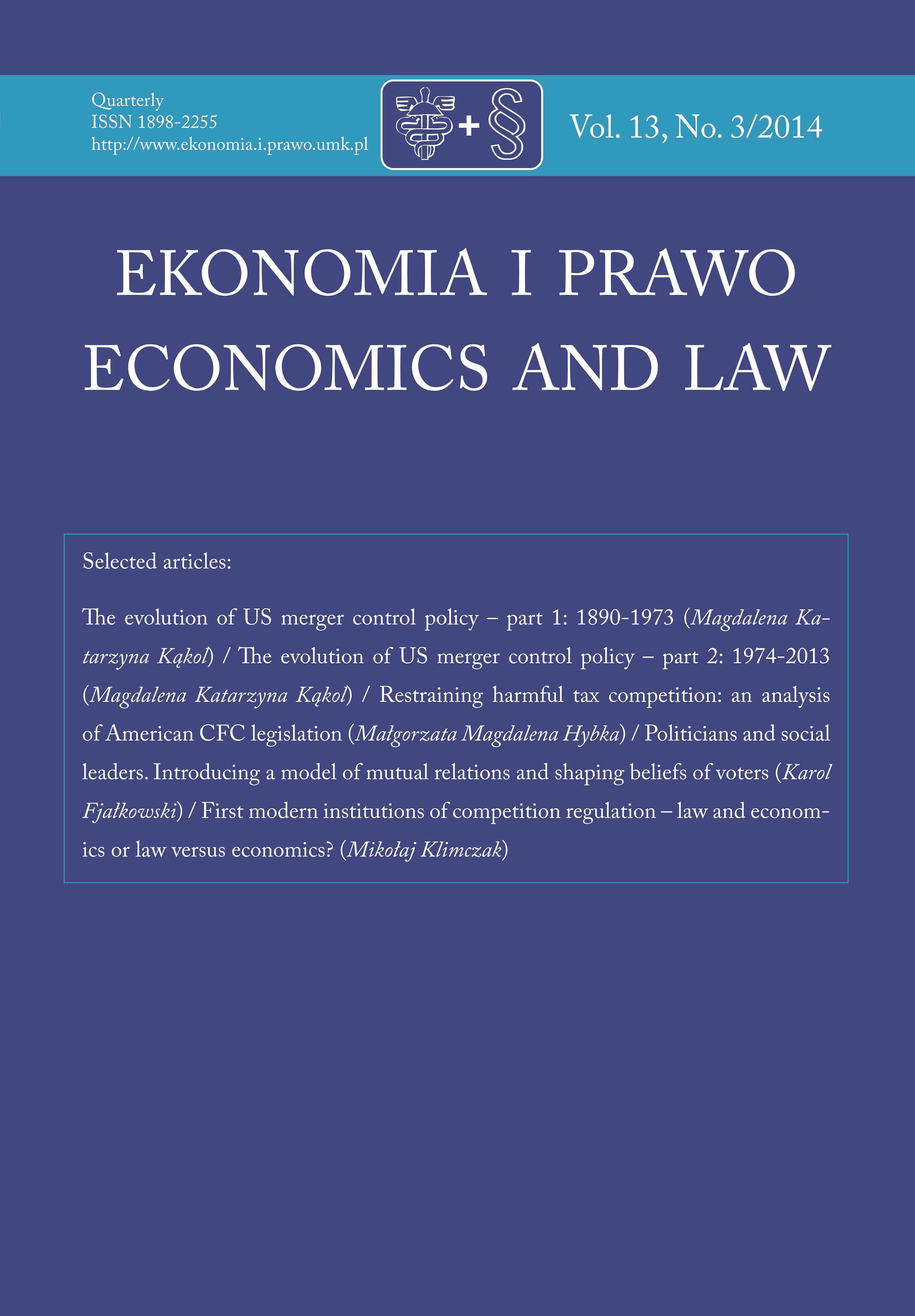RESTRAINING HARMFUL TAX COMPETITION: AN ANALYSIS OF AMERICAN CFC LEGISLATION
RESTRAINING HARMFUL TAX COMPETITION: AN ANALYSIS OF AMERICAN CFC LEGISLATION
Author(s): Małgorzata Magdalena HybkaSubject(s): Economy, Public Finances
Published by: Wydawnictwo Naukowe Uniwersytetu Mikołaja Kopernika
Keywords: harmful tax competition; tax avoidance; controlled foreign corporation; USA
Summary/Abstract: Capital and labor mobility facilitates cross-border activities of enterprises. In the era of globalization the optimal choice of investment location gives enterprises an opportunity to profit maximization. As a result the governments competing for foreign direct investment offer to enterprises preferential tax treatment. In order to minimize the loss of tax revenue countries imposing high effective tax rates on enterprises implement diversified anti-tax-avoidance measures. One of these measures is controlled foreign corporation. The article examines the application of the controlled foreign corporation rules in the United States of America to combat harmful tax competition. It has to be underlined, that the American controlled foreign corporation legislation was a prototype for other countries that use this institution to prevent tax avoidance. The aim of this article is to review the controlled foreign corporation legislation in the USA, analyze the structure of CFCs and the structure of their subpart F income in this country and evaluate the efficiency of this anti-tax-avoidance measure. The author describes inter alia, implications of harmful tax competition and the CFC rules. As the provisions of controlled foreign corporation are also planned to be introduced in Poland, the American legislation might be a good example of its successful implementation.
Journal: Ekonomia i Prawo. Economics and Law
- Issue Year: 13/2014
- Issue No: 3
- Page Range: 377-388
- Page Count: 12
- Language: English

